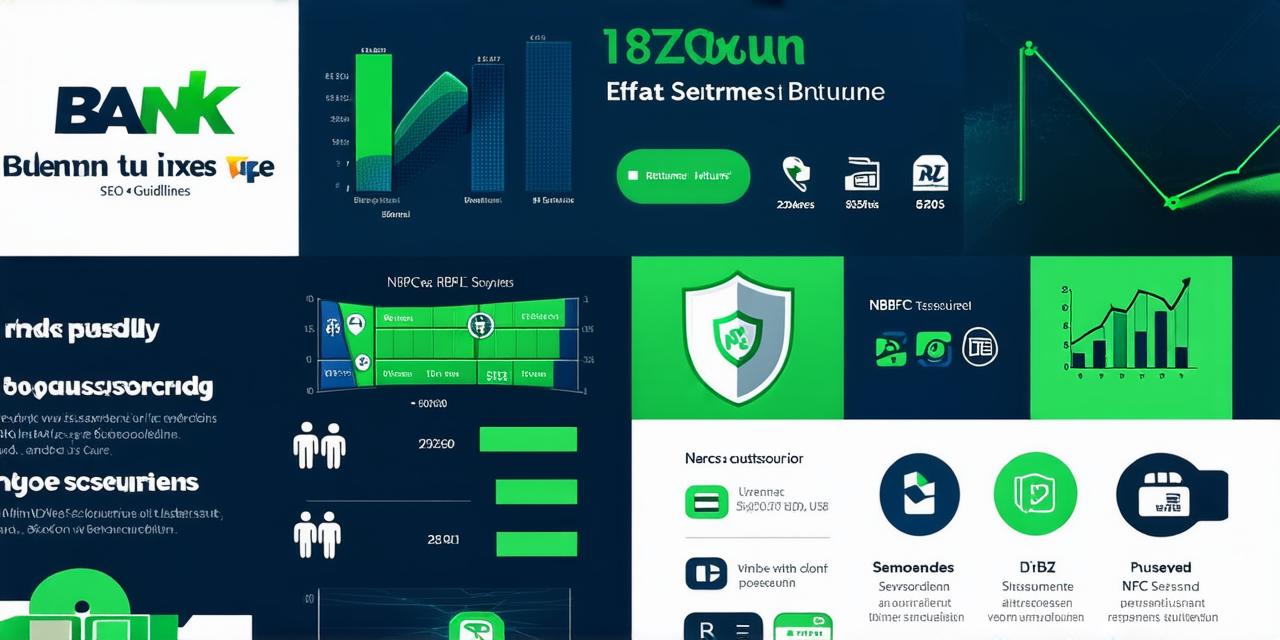
In today’s fast-paced business world, outsourcing financial services has become an essential strategy for non-banking financial companies (NBFCs) looking to cut costs and improve efficiency. However, before embarking on any outsourcing journey, it is crucial to understand the guidelines set forth by the Reserve Bank of India (RBI) to ensure compliance and protect consumer interests.
I. Introduction
A. Definition of Outsourcing
Outsourcing is a business practice where a company hires an external service provider to perform specific tasks or functions that are typically carried out in-house. In the financial sector, outsourcing has become increasingly popular, with NBFCs looking to leverage technology and expertise to improve efficiency, reduce costs, and enhance customer experience.
B. Importance of RBI Guidelines for Outsourcing Financial Services by NBFCs
The RBI guidelines for outsourcing financial services by NBFCs are designed to ensure that the outsourcing process is transparent, secure, and in compliance with regulatory requirements. By adhering to these guidelines, NBFCs can protect consumer interests, maintain trust, and avoid legal and reputational risks associated with non-compliance.
C. Overview of RBI Guidelines for Outsourcing Financial Services by NBFCs
The RBI guidelines for outsourcing financial services by NBFCs are divided into several key sections, including:
- Scope of the Guidelines
- Eligibility Criteria for Service Providers
- Contractual Requirements
- Data Security and Privacy Protection
- Compliance and Monitoring
- Risk Management
- Transition and Termination
- Reporting Requirements
- Training and Awareness
- Dispute Resolution
II. Scope of the Guidelines
The RBI guidelines for outsourcing financial services by NBFCs apply to all aspects of the outsourcing process, including data management, technology infrastructure, operations, and customer service. The guidelines are intended to ensure that the outsourcing process is conducted in a transparent, secure, and compliant manner, and that consumer interests are protected at all times.
III. Eligibility Criteria for Service Providers
The RBI guidelines require NBFCs to conduct a thorough vetting process when selecting service providers for financial services outsourcing. Service providers must meet specific eligibility criteria, including:
- Legal and Regulatory Compliance: The service provider must be registered with the relevant regulatory authorities and comply with all applicable laws and regulations.
- Technical Expertise: The service provider must have the necessary technical expertise to perform the tasks assigned to them.
- Financial Stability: The service provider must have a sound financial position and be able to meet their contractual obligations.
- Data Security and Privacy Protection: The service provider must comply with all relevant data security and privacy laws and regulations.
- Contractual Requirements: The service provider must enter into a written agreement that clearly outlines the terms and conditions of the outsourcing arrangement.
- Transition and Termination: The service provider must have a well-defined process for transitioning to the NBFC’s systems and terminating the contract in case of non-performance or breach of contract.
IV. Contractual Requirements
The RBI guidelines require NBFCs to enter into a written agreement with service providers that clearly outlines the terms and conditions of the outsourcing arrangement. The agreement should cover the following key areas:
- Scope of Work: A detailed description of the tasks to be performed by the service provider, including timelines, deliverables, and performance metrics.
- Data Security and Privacy Protection: Clear guidelines for data management, encryption, and access controls, as well as procedures for breach notification and incident response.
- Intellectual Property Rights: A clear understanding of ownership rights to any intellectual property created or used in the outsourcing process.
- Payment Terms: The payment structure, including pricing, payment schedules, and performance-based incentives.
- Termination and Renewal: Procedures for terminating or renewing the agreement, including notice periods, termination grounds, and dispute resolution mechanisms.
- Governing Law: The jurisdiction in which any disputes arising from the agreement will be resolved.
- Confidentiality: Obligations to maintain confidentiality of sensitive information shared between the parties.
- Compliance and Monitoring: Procedures for ensuring compliance with applicable laws, regulations, and internal policies.
V. Data Security and Privacy Protection
Data security and privacy protection are critical aspects of outsourcing financial services by NBFCs. The RBI guidelines require service providers to comply with all relevant data security and privacy laws and regulations, including:
- Data Encryption: All sensitive data must be encrypted both in transit and at rest.
- Access Controls: Access to sensitive data must be restricted to authorized personnel only, and access controls must be implemented to prevent unauthorized access.
- Breach Notification: Service providers must have a process in place for breach notification, including procedures for identifying, containing, and reporting breaches.
- Incident Response: Service providers must have an incident response plan in place that outlines the steps to be taken in case of a data breach or cyber-attack.
- Regular Audits: Regular audits must be conducted to ensure compliance with data security and privacy regulations.
VI. Compliance and Monitoring
Compliance and monitoring are essential aspects of outsourcing financial services by NBFCs. The RBI guidelines require NBFCs to establish a comprehensive compliance and monitoring framework that includes:
- Internal Controls: Internal controls must be established to ensure compliance with applicable laws, regulations, and internal policies.
- External Audits: Regular external audits must be conducted to assess the service provider’s compliance with data security and privacy regulations.
- Reporting Requirements: Service providers must provide regular reports to NBFCs on their compliance status, including any breaches or incidents.
- Dispute Resolution: A dispute resolution mechanism must be in place to address any issues arising from non-compliance or breach of contract.
- Continuous Monitoring: Continuous monitoring must be conducted to ensure ongoing compliance with data security and privacy regulations.
VII. Risk Management
Risk management is a critical aspect of outsourcing financial services by NBFCs. The RBI guidelines require service providers to identify, assess, and manage risks associated with the outsourcing process, including:
- Operational Risks: Risks associated with the day-to-day operations of the service provider, such as system failures, cyber-attacks, and data breaches.
- Contractual Risks: Risks associated with the contractual arrangement, such as payment delays, breach of contract, and termination.
- Legal and Regulatory Risks: Risks associated with changes in laws, regulations, or industry standards.
- Compliance Risks: Risks associated with non-compliance with data security and privacy regulations.
- Communication Risks: Risks associated with communication breakdowns between the NBFC and the service provider.
VIII. Conclusion
Outsourcing financial services by NBFCs can provide significant benefits, including cost savings, increased efficiency, and improved innovation. However, it also comes with significant risks, particularly in terms of data security and privacy protection. The RBI guidelines provide a comprehensive framework for managing these risks and ensuring compliance with relevant laws and regulations. NBFCs must carefully vet service providers, establish robust contractual arrangements, and implement effective compliance and monitoring frameworks to ensure the successful execution of financial services outsourcing.
